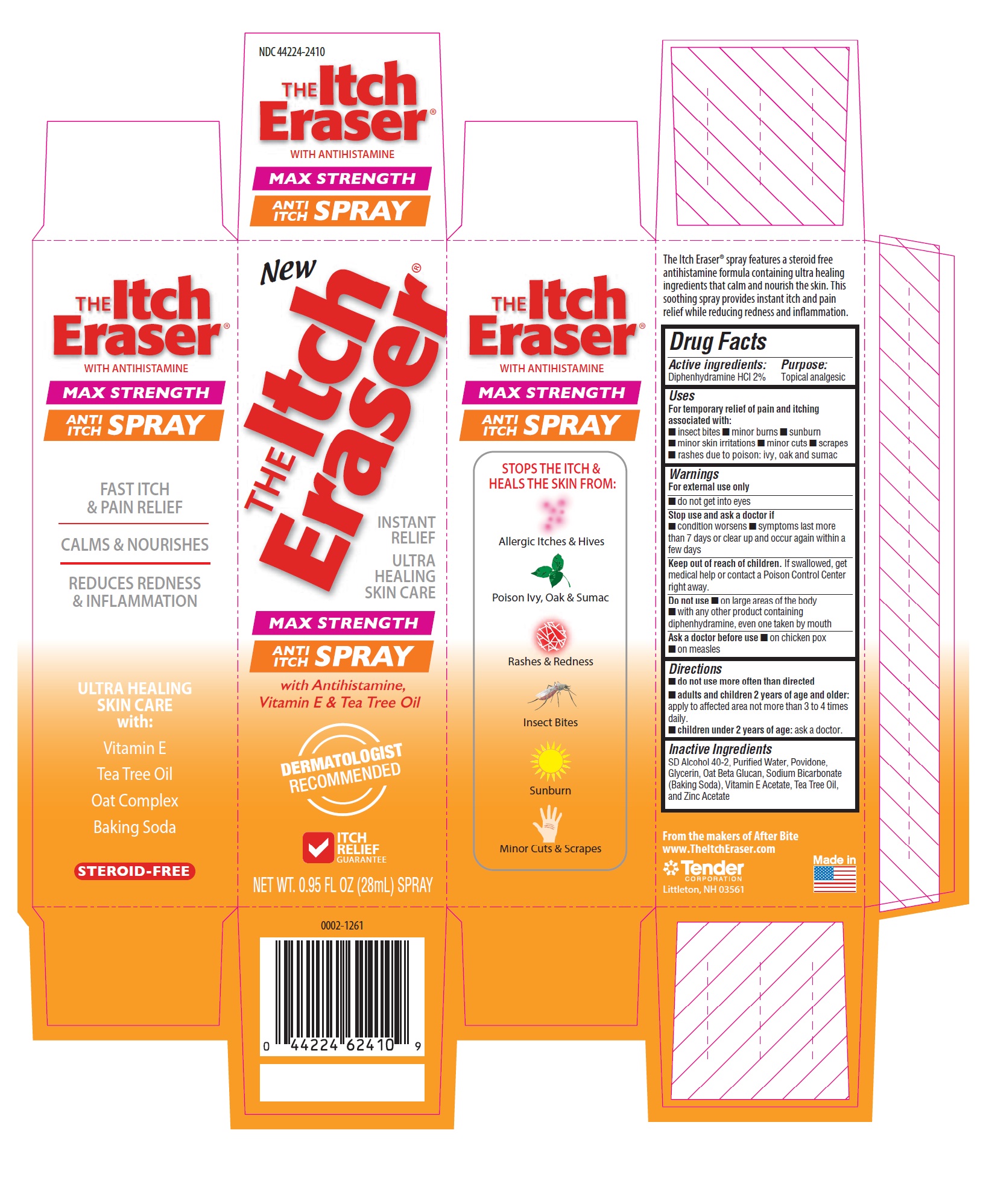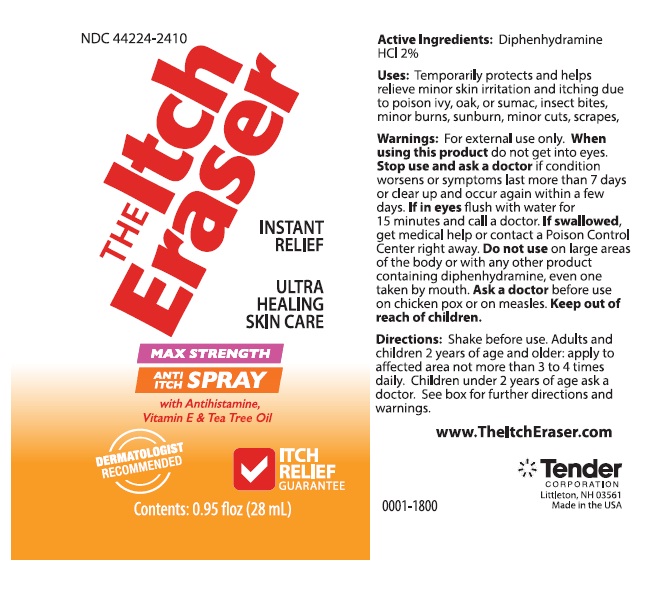The Itch Eraser Max Strength | Diphenhydramine Hydrochloride Spray while Breastfeeding

What is The Itch Eraser Max Strength | Diphenhydramine Hydrochloride Spray used for?
Brief: Purpose: Topical analgesic
Can I continue breastfeeding if I am using The Itch Eraser Max Strength | Diphenhydramine Hydrochloride Spray? How long does it stays in breast milk?

The Itch Eraser Max Strength | Diphenhydramine Hydrochloride Spray Breastfeeding Analsys
Diphenhydramine hydrochloride while Breastfeeding
Low RiskCAS Number: 58-73-1
It is a first generation antihistamine drug (Ethanolamine) with a strong sedative effect. A high protein-binding capacity makes difficult an excretion into breast milk in significant amounts in accordance with old studies that had confirmed it. The absorption from ingested mother's milk to the infant's plasma is hampered by a low oral bioavailability. For both, the mother and the infant is safer the use of antihistamine medication with higher safety levels without sedative effect, especially when the child is a premature or younger than 1 month old. Neither a decrease of milk production nor alteration of Prolactin release have been shown with the use of this drug. When used while breastfeeding do it with the lower dose as possible and avoid a long-term use. Check up for feeding difficulty and somnolence in the infant. Bed-sharing with the infant is not recommended for parents who are on this medication.
The Itch Eraser Max Strength | Diphenhydramine Hydrochloride Spray Breastfeeding Analsys - 2
Diphenhydramine hydrochloride while Breastfeeding
CAS Number: 58-73-1
Small, occasional doses of diphenhydramine would not be expected to cause any adverse effects in breastfed infants. Larger doses or more prolonged use may cause effects in the infant or decrease the milk supply, particularly in combination with a sympathomimetic such as pseudoephedrine or before lactation is well established. Single bedtime doses after the last feeding of the day may be adequate for many women and will minimize any effects of the drug. The nonsedating antihistamines are preferred alternatives.

What should I do if I am breastfeeding mother and I am already exposed to The Itch Eraser Max Strength | Diphenhydramine Hydrochloride Spray?
During whole lactation period you shall first discuss with your doctor and then together you shall decide whether you shall take that drug or not however if you have already taken The Itch Eraser Max Strength | Diphenhydramine Hydrochloride Spray then you shall inform your doctor, But you should not be worried too much as The Itch Eraser Max Strength | Diphenhydramine Hydrochloride Spray comes in category of low risk drug.
My doctor has prescribed me The Itch Eraser Max Strength | Diphenhydramine Hydrochloride Spray, what should I do?
The Itch Eraser Max Strength | Diphenhydramine Hydrochloride Spray comes in category of low risk and if your doctor is aware that you are breastfeeding it should be ok to use
If I am using The Itch Eraser Max Strength | Diphenhydramine Hydrochloride Spray, will my baby need extra monitoring?
Not much
Who can I talk to if I have questions about usage of The Itch Eraser Max Strength | Diphenhydramine Hydrochloride Spray in breastfeeding?
US
National Womens Health and Breastfeeding Helpline: 800-994-9662 (TDD 888-220-5446) 9 a.m. and 6 p.m. ET, Monday through Friday
UK
National Breastfeeding Helpline: 0300-100-0212 9.30am to 9.30pm, daily
Association of Breastfeeding Mothers: 0300-330-5453
La Leche League: 0345-120-2918
The Breastfeeding Network supporter line in Bengali and Sylheti: 0300-456-2421
National Childbirth Trust (NCT): 0300-330-0700
Australia
National Breastfeeding Helpline: 1800-686-268 24 hours a day, 7 days a week
Canada
Telehealth Ontario for breastfeeding: 1-866-797-0000 24 hours a day, 7 days a week
